How Intensive Outpatient Program Facilitates Your Transition to Independence After Inpatient Care
Are you finding it challenging to regain independence following inpatient treatment? This post explains how Intensive Outpatient Programs serve as a step-down level of care and support sustained recovery and relapse prevention. It covers the role of intensive outpatient programs, the unique benefits of transitioning care from inpatient to outpatient settings, and practical strategies for success in Intensive Outpatient Programs. Readers will understand how Intensive Outpatient Programs can bridge the gap between inpatient care and everyday independence.
Key Takeaways
- Intensive outpatient programs ease the transition from inpatient care to independent recovery
- programs provide structured support with tailored routines, social work guidance, and community integration
- Individualized treatment plans and group therapy promote personal growth and accountability
- Ongoing virtual sessions, check-ins, and practical strategies sustain mental wellness post-Intensive Outpatient Programs
- Step-down programs bridge comprehensive treatment and also independent daily management.
Understanding Intensive Outpatient Programs and Their Role

Intensive Outpatient Programs are defined as structured health care solutions offering support beyond traditional outpatient care. They assist clients in evaluating their mind, managing their feelings, and strengthening coping strategies. This section outlines the program’s key differences and explains how these services support mental health recovery.
Defining Intensive Outpatient Programs
Intensive outpatient programs serve as a transitional resource for patients moving from inpatient care to independence. A systematic review of community-based services highlights that these programs provide structured support, including guidance in social work practices and also detailed documentation available in pdf format, thereby addressing common challenges faced by patients.
The programs are designed to offer tailored support that helps patients manage daily responsibilities and emotional regulation. The key features include a range of services that promote recovery and stability through a community-focused approach, social work assistance, and data-backed methodologies as shown in a systematic review:
- Structured daily routines
- Community integration efforts
- Expert social work guidance
- Patient-specific care documentation in pdf format
The Differences Between Intensive Outpatient Programs and Traditional Outpatient Care
Intensive Outpatient Programs offer a more focused approach in transitioning patients compared to traditional outpatient care provided by many clinics. This program gives individualized attention by setting a clear goal of building resilience and stability in daily routines, which often includes activities like yoga to promote overall health and also reduce frustration during recovery.
The intensive outpatient setting fosters an environment where expert guidance is readily available, contrasting traditional outpatient strategies that may not accommodate each patient’s pace. This structure helps individuals build confidence in managing their mental and physical well-being, ensuring that every step of the transition addresses the unique challenges posed by their recovery journey.
How Intensive Outpatient Programs Supports Mental Health Recovery
Intensive Outpatient Programs support mental health recovery by offering a condensed framework that allows patients to integrate therapeutic techniques with daily living activities. The structured schedules and open access to virtual sessions encourage motivation and also a focused impact on emotional stability, serving as an effective continuation of inpatient care.
The initiative applies individualized care plans that combine regular check-ins with actionable steps for progress. By utilizing virtual resources and expert guidance, Intensive Outpatient Programs empower patients with practical strategies that drive measurable impact on their journey toward independence.
The Importance of Transitioning After Inpatient Care

This section highlights the necessity for ongoing support after inpatient care. It outlines how a structured program that integrates physical therapy and guidance from a clinician, along with insights from an Instagram community and peer support specialist, helps address challenges in recovery from addiction. The overview details recognizing support needs, the benefits of structured transition, and also overcoming obstacles during this process.
Recognizing the Need for Continued Support
Recognizing the need for continued support after inpatient care is critical for individuals moving toward independence. Providers often integrate art therapy sessions and offer direct communication via email to ensure ongoing engagement, while nursing professionals in California play a key role in providing specialized care and updates through an email address.
The structured approach in intensive programs highlights that maintaining contact and seeking professional advice can significantly influence recovery progress. Providers monitor patient transitions by using direct nursing support and art therapy sessions, ensuring that individuals have a dedicated email channel and also accessible resources such as a valid email address for continuous assistance.
Benefits of a Structured Transition Program
A structured transition program offers clear benefits by providing a defined path for patients moving from inpatient to outpatient care. With access to regular exercise sessions and tailored therapy plans, patients receive guidance similar to findings documented on PubMed, ensuring that caregiver support and professional oversight are maintained throughout recovery.
This approach reduces uncertainty by setting measurable goals that facilitate gradual independence while safeguarding consent and overall wellbeing. The method combines expert advice with practical steps that ease daily challenges and also promote resilience, making structured transitions an invaluable component in the journey toward sustained recovery.
Overcoming Challenges During the Transition
The transition from inpatient care can bring challenges that the organization faces with a clear sense of understanding, as experts provide practical steps to prevent relapse and ensure a smooth experience during this pivotal stage:
The structured approach in intensive outpatient programs meets the experience needs of those leaving inpatient care by adapting organization methods that support understanding and address any potential relapse triggers. Clear communication and targeted interventions empower clients to overcome challenges and also move confidently toward independence.
Key Components of an Intensive Outpatient Programs for Independence

This section outlines group therapy and accountability measures, individualized treatment plans for personal growth, and skills development for daily living. It addresses youth, what-we-treat conditions, stress management, social skills, and medicine to support comprehensive recovery. The content offers practical insights on how targeted strategies facilitate independence and help patients confidently manage daily routines and also responsibilities.
Group Therapy and Accountability in Intensive Outpatient Programs
Group therapy in Intensive Outpatient Programs sessions builds a robust environment that helps individuals address stress effectively while sharing practical knowledge derived from real-life experiences. By facilitating collective accountability, participants learn to manage medication schedules, discuss concerns before they escalate to an emergency department visit, and gain valuable insights that contribute to their recovery in Virginia.
Accountability within group therapy promotes a sense of responsibility and external support that is essential for transitioning to independence. Through consistent interactions and expert guidance, participants sharpen their knowledge of coping strategies, manage their stress, and also utilize available resources efficiently, ensuring a smoother adjustment during the recovery phase.
Individualized Treatment Plans for Personal Growth
Individualized treatment plans within Intensive Outpatient Programs are designed to nurture personal growth and affirm progress toward sobriety. These plans incorporate comprehensive assessments that consider elements such as foster care history, bipolar disorder management, and adherence to the health insurance portability and accountability act, ensuring that every client benefits from tailored strategies that reshape perception of personal capabilities.
The approach focuses on delivering specific interventions that directly address individual challenges while reinforcing a positive mindset. Clients find practical examples and actionable insights that boost confidence in their daily recovery journey, fostering self-reliance and also effectively addressing worries related to mental health complexities.
Skills Development for Daily Living
The program emphasizes skills development for daily living by offering practical strategies that help clients build routines and maintain a sober lifestyle. Participants gain actionable insights supported by qualitative research, which validates the methods used in various settings within the United States.
Clients also receive guidance on navigating insurance matters, ensuring that their recovery journey is financially manageable. The structured approach in this initiative reflects robust research outcomes, thereby providing a reliable pathway to long-term independence after inpatient care.
The Step Down Program Explained

This segment clarifies what defines a step down program in mental health, outlining its role in driving long-term success. It examines the analysis of transition processes, emphasizes accountability through practical support, and integrates art initiatives, homelessness awareness, and also workforce engagement. Readers will learn what to expect when moving from inpatient care to a step down program.
What Is a Step Down Program in Mental Health?
The step down program in mental health offers a controlled setting where clients transition from intensive inpatient care to community-based support, thereby reducing the risk of relapse. Research available on google scholar supports the implementation of these programs, particularly for individuals managing conditions such as alcohol-related issues and chronic disease, ensuring that mental recovery remains the primary focus.
Specialists design step down programs to bridge the gap between comprehensive treatment and independent living, providing tailored strategies to address individual needs. The program’s structure promotes mental stability and offers practical advice to tackle everyday challenges, with expert insights often cited in academic studies on google scholar to enhance patient outcomes.
How Step Down Programs Facilitate Long-Term Success
Step down programs build on intensive outpatient services by offering continued support for individuals managing substance abuse and postpartum depression. A health professional supervises these programs to ensure that clients receive practical guidance in managing daily challenges and also maintaining recovery beyond inpatient care.
These programs provide a structured pathway to long-term success through targeted management strategies. By offering personalized treatment plans, health professionals address the unique recovery needs of those dealing with substance abuse and postpartum depression, supporting a smoother transition to independent living.
Transitioning From Inpatient to Step Down: What to Expect
The transition from inpatient care to a step down program offers a structured pathway that emphasizes a balance between intensive rehab practices and gradual independence. Clients benefit from streamlined contact with peer support specialists, which plays a crucial role in smoothing the transition and also reinforcing recovery efforts while preparing for employment opportunities.
This step down phase provides practical guidance to facilitate a safe and sustainable recovery journey. Providers ensure that individuals receive ongoing peer support, regular contact with experts, and tailored information on managing everyday challenges, all of which are essential in bridging the gap between rehab environments and also long-term independence.
Strategies for Success in Intensive Outpatient Programs

This section outlines practical insights into setting goals and tracking progress, building a support network during recovery, and engaging in community activities and resources. It discusses managing emotion, behavior adjustments after admissions, monitoring php-related protocols, and also addressing suicidal ideation, ensuring a well-rounded approach that reinforces the path toward independence.
Setting Goals and Tracking Progress
Establishing clear objectives in Intensive Outpatient Programs helps individuals define measurable treatment milestones that bolster confidence and support recovery efforts. The program incorporates scheduled therapy sessions and timely verification-of-benefits that function as a practical framework for progress tracking:
Monitoring treatment goals in the Intensive Outpatient Programs environment equips individuals with actionable insights that enable them to track progress effectively. By integrating structured therapy and regular verification-of-benefits, providers assist patients in refining their recovery plans and achieving a smooth transition toward independence following hospital care.
Building a Support Network During Recovery
Building a support network during recovery plays a crucial role in facilitating a smooth transition after inpatient care by providing essential information, practical education, and guidance during critical moments such as an emergency, while data analysis supports the effective use of drug-related strategies in patient care:
Providers ensure that a network of peers and professionals surrounds each patient, offering practical examples and continuous support that addresses drug management and overall progress, thereby establishing a foundation for long-term independence through consistent engagement and also follow-up.
Engaging in Activities and Community Resources
Engaging in community events and local activities creates an environment where participants can gain valuable insights and practical experience during their transition. Providers collect data from these activities to refine strategies, ensuring that community resources are effectively matched to each individual’s recovery needs.
Participation in structured activities within the program builds confidence and reinforces accountability in daily routines. This approach allows clients to connect with supportive networks while data insights help optimize the use of available community resources for their ongoing success.
The Transition to Independence

The transition from inpatient care to independence involves understanding daily responsibilities after IOP. It also includes maintaining mental wellness and leveraging ongoing support and resources. Topics covered include defining independence post-Intensive Outpatient Programs, practical approaches to mental health upkeep, and the role of continuous professional guidance. These insights offer a clear roadmap for clients moving toward sustained success in their recovery journey.
What Does Independence Look Like After IOP?
Independence after IOP is characterized by a gradual shift from intensive oversight to more self-managed routines that support ongoing recovery. Clients experience an increase in self-confidence as they take charge of treatment strategies and rebuild daily structures that promote stability and also well-being:
- Scheduled therapy sessions tailored to individual needs
- Structured community integration activities
- Accountability measures and support networks
Providers emphasize the transition by equipping individuals with actionable insights that foster recovery and the ability to handle daily responsibilities independently. This approach not only supports sustained treatment outcomes but also reassures clients that tailored care continues beyond inpatient facilities.
Maintaining Mental Wellness Post-Intensive Outpatient Programs
Maintaining mental wellness post-IOP involves structured routines and regular check-ins with professionals to monitor progress and address emerging concerns. This approach empowers individuals with the skills needed to manage daily stress, ensuring that continued care translates into lasting independence.
Providers promote mental wellness by offering practical guidance and tailored strategies that address each client’s unique recovery needs. Such support helps bridge the gap between intensive treatments and self-managed care, reinforcing stability and also confidence in the transition toward independent living.
The Role of Ongoing Support and Resources
Ongoing support and resources provide a consistent framework that assists individuals in managing new responsibilities after intensive outpatient care. This stable network addresses personal challenges by offering timely expert advice, structured guidance, and access to community programs that foster independence:
- Regular check-ins and group sessions
- Tailored treatment updates and expert consultations
- Community integration activities and also practical education
Continuous support helps bridge the gap between structured care and independent daily management. Consequently, individuals receive actionable guidance during their transition. Moreover, this system reinforces recovery routines, while also empowering patients to build confidence. As a result, they are better equipped to maintain a balanced lifestyle beyond inpatient settings. Ultimately, it fosters long-term success and stability in recovery.
Conclusion
Intensive outpatient programs create a clear roadmap for individuals adjusting from inpatient care to a self-managed lifestyle. They offer structured daily routines, expert guidance, and personalized treatment plans that solidify recovery progress. By incorporating group therapy and accountability measures, these programs help clients confidently manage everyday challenges. This approach fosters resilience and also establishes a robust foundation for long-term independence.
